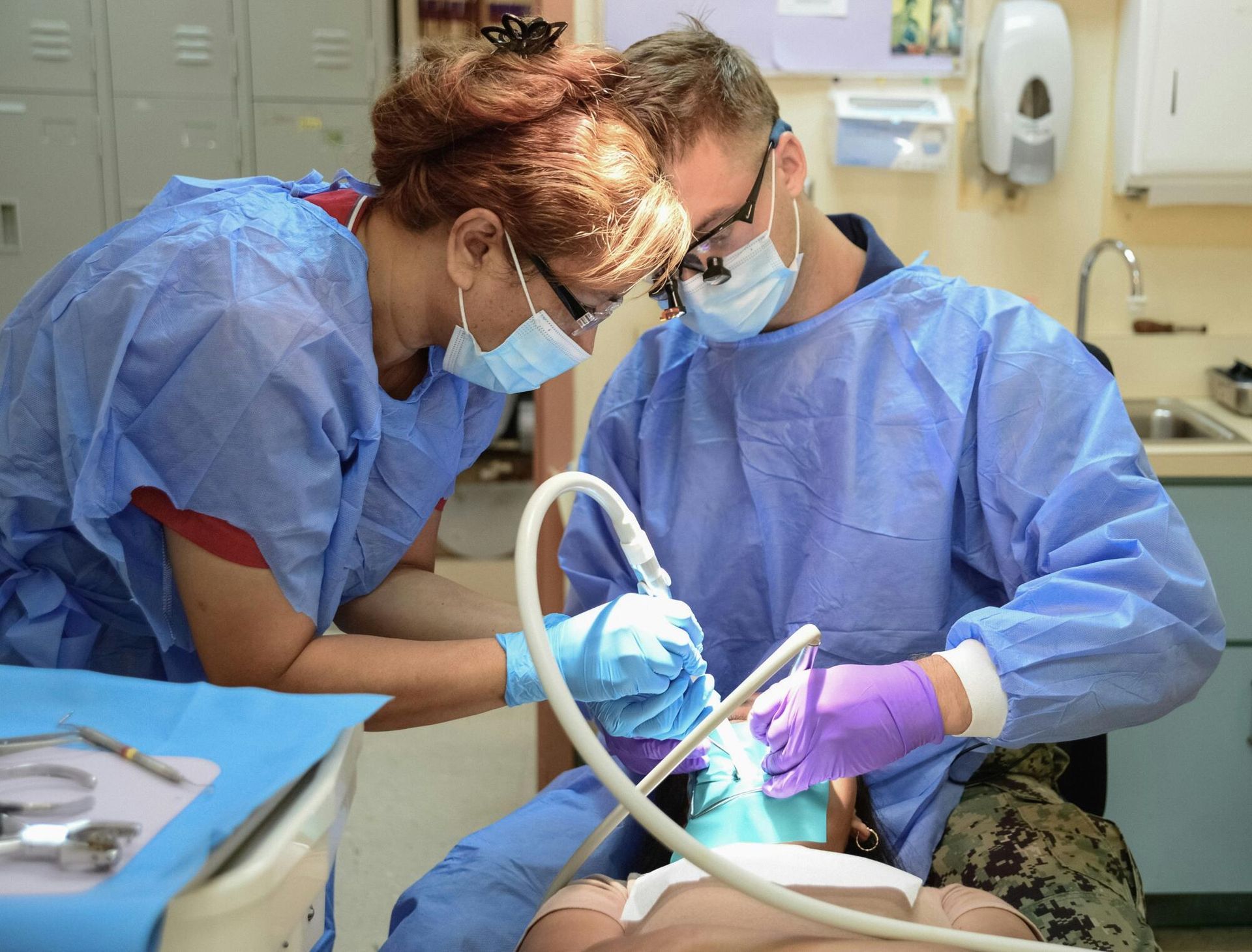The Connection Between TMJ and Neck Pain: Understanding the Link
While several parts of the human body are intrinsically linked, nothing is more closely connected than the head and neck. One cannot function without the other, so it's no wonder that if you're experiencing pain in your head, it could transfer down to your neck.
The head and neck connect via a range of joints and muscles. Any type of irritation or inflammation in the joints of the head could eventually transfer down to the neck - as is the case with TMJ and neck pain.
This blog outlines all you need to know about how TMJ causes neck pain and what you can do about it. Read on for more.
What Exactly is TMJ?
The temporomandibular joint, aka TMJ, connects the skull and lower jawbone. It is on either side of the head and allows us to open and close our mouths freely. It's also responsible for other vital functions such as chewing, talking, yawning, and general jaw function.
Temporomandibular joint disorder, also called TMD, develops when the TMJ is damaged or overworked. The end result is chronic jaw pain when using the jaw for just about any function. This pain can also affect the neck, shoulders, and other parts of the face.
Some common symptoms of TMD include pain in the jaw joint/muscles, neck, and shoulders. You might also struggle with chronic headaches, ear pain, ringing in the ears, and painful clicking or grinding of the jaw when eating, drinking, and talking.
TMJ and Neck Pain: How They're Linked
All too often, TMD ends up becoming more than just a disorder of the lower jaw joint. If left untreated, it can begin to affect surrounding muscles, which leads to referred pain in other areas.
One of the most common areas is the neck.
The relationship between TMD and neck pain is intricate, and it involves a number of different factors. But most of the time, the link between the two boils down to muscle tension, followed by poor posture, which increases muscle tension, and so the cycle goes on.
Other factors also include nerve issues within the cervical spine, caused by TMD, which then leads to referred pain. The connection between TMJ dysfunction and neck pain works both ways, too. Tension/pain in the neck can also refer back up to the TMJ.
Some classic signs of TMJ-related neck pain symptoms include:
- A constant, dull ache in the jaw and neck.
- Instances of sharp, stabbing pain in both the neck and jaw, which relates to issues of severe inflammation.
- One-sided or bilateral pain - you might only feel pain in one side of the neck, which can then move to both sides of the neck.
- You feel pain at the base of your skull, where the skull connects to the neck, sometimes just under the ears.
- You might feel pain along the sides of the neck.
- You feel pain at the back of your neck, which leads to a stiff neck and limited head mobility.
If you've been struggling with TMJ neck pain for some time, you might find yourself wondering if there is an end in sight. But the key to banishing TMJ-related neck pain is to tackle the root issue - your TMD.
The duration of this type of neck pain can vary from person to person based on several factors. Some include the underlying cause of your TMD, its severity, what triggers it, and the type of treatment you're having.
Neck pain related to TMD could be a short-lived issue, or it could come down to chronic pain management if you fail to address the root of the problem. You might experience intermittent pain related to flare-ups with your TMD. Pain flares can last from two days to several weeks, depending on how you're managing your TMD.
Common Treatment Options
If you're living with TMD and related neck pain, there are a few ways you can address the problem. The most important, though, is addressing the underlying issue, which is the dysfunction/damage to your temporomandibular joint.
Some common treatment options for tackling neck pain include:
- Physical therapy - a trained professional offers massage of the neck while teaching you simple exercises and stretches to help alleviate pain and tension.
- Simple lifestyle changes: it's important to think about maintaining good back/neck posture, try to avoid clenching your teeth, and keep up regular exercise and stretching.
- Over-the-counter medications offer temporary relief from pain and inflammation.
- TMD can have a dire dental health impact; that's why certain dental treatments can really help. Visiting a dentist can assist with correcting misaligned teeth, thereby reducing strain on the jaw.
- Your dentist might also recommend a night mouth guard or splint to reduce instances of teeth clenching or grinding, which helps to reduce tension and pain.
Of course, there are more advanced options for treating severe cases of TMD. If needed, there is the option of corticosteroid injections, along with other medications, to treat pain and inflammation. Then there's also the option of surgery if there are serious structural issues of the jaw that need correcting.
The best treatment for TMD and related neck pain is to visit a dental specialist with expertise in treating TMJ disorders. They will be able to fully assess the scope of your condition and offer the best treatment plan.
Looking for Relief from TMJ and Neck Pain?
There's no denying that TMJ and neck pain are intrinsically linked. But if this type of pain and discomfort is affecting your way of life, you don't have to live with it - you just need to find the right TMJ specialist.
Dental Care Burke is your go-to for all the jaw pain relief you're looking for. If you're experiencing persistent pain, we urge you to schedule a consultation. From there, we'll carry out an in-depth exam (including x-rays), you'll have a one-on-one consultation with TMJ expert Dr. Lynch, and we'll formulate a tailored treatment plan.
Schedule your appointment with us today.












